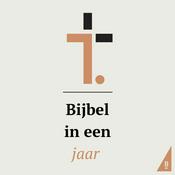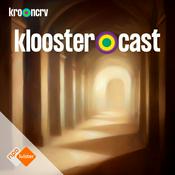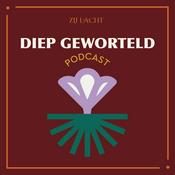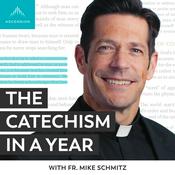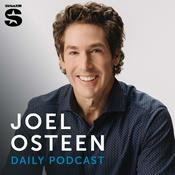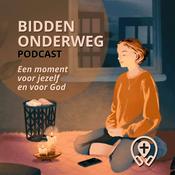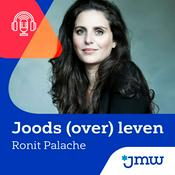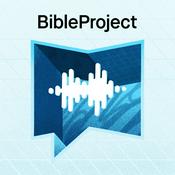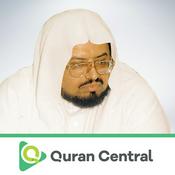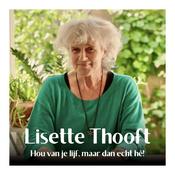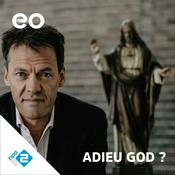100 afleveringen

At-Takathur التكاثر "Rivalry, Competition"
14-2-2025 | 0 Min.
At-Takāthur ( التكاثر, "Rivalry, Competition") is the 102nd chapter of the Qur'an, with 8 versesRegarding the timing and contextual background of the believed revelation (asbāb al-nuzūl), it is an earlier "Meccan surah", which means it is believed to have been revealed in Mecca, rather than later in Medina.Text, translation, and transliterationThe translation is the Saheeh International English translation of the Qur'an.بِسْمِ ٱللَّهِ ٱلرَّحْمَٰنِ ٱلرَّحِيمِBismi l-āhi r-raḥmāni r-raḥīm(i)In the name of Allāh, the Entirely Merciful, the Especially Merciful...أَلْهَىٰكُمُ ٱلتَّكَاثُرُ 1 ’al hākumu t-takāthur(u)Competition in [worldly] increase diverts youحَتَّىٰ زُرْتُمُ ٱلْمَقَابِرَ 2 Ḥattā zurtumu l-maqābir(a)Until you visit the graveyards.كَلَّا سَوْفَ تَعْلَمُونَ 3 Kallā sawfa ta‘lamūn(a)No! You are going to know.ثُمَّ كَلَّا سَوْفَ تَعْلَمُونَ 4 Thumma kallā sawfa ta‘lamūn(a)Then, no! You are going to know.كَلَّا لَوْ تَعْلَمُونَ عِلْمَ ٱلْيَقِينِ 5 Kallā law ta‘lamūna ‘ilma l-yaqīn(i)No! If you only knew with knowledge of certainty...لَتَرَوُنَّ ٱلْجَحِيمَ 6 Latarawunna l-jaḥīm(a)You will surely see[note 1] the Hellfire.ثُمَّ لَتَرَوُنَّهَا عَيْنَ ٱلْيَقِينِ 7 Thumma latarawunnahā ‘ayna l-yaqīn(i)Then you will surely see it with the eye of certainty.ثُمَّ لَتُسْـَٔلُنَّ يَوْمَئِذٍ عَنِ ٱلنَّعِيمِ 8 Thumma latus’alunna yawma’idhin ‘ani n-na‘īm(i)Then you will surely be asked that Day about pleasure.OverviewAfter the bismillah, this Surah is concerned with factionalism and schism amongst people. Disagreements between individuals and groups follow us "even until you visit the tombs". Three times in a row the sura warns the reader that "you shall know" that those who sow discord are headed towards Hell. Here, proper understanding is required for entrance into Paradise, and should one not attain this on Earth, one will receive the "eye of certainty" on the Day of Judgment, when "you shall be questioned ... concerning true bliss".

Al-Adiyat - The War Horses which run swiftly العاديات "The Courser, The Chargers"
16-6-2024 | 1 Min.
Al-Adiyat or The War Horses which run swiftly[1] (Arabic: العاديات, al-ʿādiyāt, also known as "The Courser, The Chargers") is the 100th chapter (sūrah) of the Qur'an, with 11 āyāt or verses. Regarding the timing and contextual background of the revelation (asbāb al-nuzūl), it is an earlier "Meccan surah", which means it is believed to have been revealed in Mecca, rather than later in Medina Summary 1-6 Oaths that man is ungrateful to his God 7-8 Man loves the things of this world 9-11 Man’s secret thoughts shall be discovered in the judgment-day [2] A one liner theme of surah al-adiyat would read that this surah gives an example that horses are more grateful to their owners than men are to their Rabb (Allah).[3] First five ayaat of the surah consist of an oath as a metaphor enforcing the lesson.[4] They describe a scene of horses charging, panting, producing sparks by their hooves, raiding at the time of dawn, stirring up the cloud of dust and arriving a gathering. The substantive proposition is in verses 6-8 that Man is ungrateful to his Lord and himself is a witness to it and he is immoderate in the love of worldly good.[5] The last three ayaat conclude the surah with a rhetorical question that Does the man not know about the time when contents of the graves will be resurrected and that which is in men's breasts shall be brought to light on that Day their Sustainer will show that He has always been fully aware of them Period of revelation Whether this Surah Al-Adiyat is a Makki or a Madani is disputed. But the subject matter of the Surah and its style clearly indicate that it is not only Makki, but was revealed in the early stage of Makkan period.[3] Abdullah bin Masud, Jabir, Hasan Basri, Ikrimah, and Ata say that it is Makki. Anas bin Malik, and Qatadah say that it is Madani; and from Ibn Abbas two views have been reported, first that it is a Makki Surah, and second that it is Madani. But the subject matter of the Surah and its style clearly indicate that it is not only Makki but was revealed in the earliest stage of Makkah. So the surah is considered to be Meccan conclusively.[6] Hadith According to hadith this surah is recommended in Maghrib prayer. Hisham ibn Urwah said that his father used to recite the surahs like the Al-Adiyat is recited. Abu Dawud said: This indicates that those (traditions indicating long surahs) are abrogated, and this is more sound tradition.[7]

Al-Adiyat العاديات al-ʿādiyāt "The Courser, The Chargers"
14-6-2024 | 1 Min.
Al-Adiyat or The War Horses which run swiftly[1] ( العاديات, al-ʿādiyāt, also known as "The Courser, The Chargers") is the 100th chapter of the Qur'an, with 11 āyāt or verses. Regarding the timing and contextual background of the revelation (asbāb al-nuzūl), it is an earlier "Meccan surah", which means it is believed to have been revealed in Mecca, rather than later in Medina Summary 1-6 Oaths that man is ungrateful to his God 7-8 Man loves the things of this world 9-11 Man’s secret thoughts shall be discovered in the judgment-day [2] A one liner theme of surah al-adiyat would read that this surah gives an example that horses are more grateful to their owners than men are to their Rabb (Allah).[3] First five ayaat of the surah consist of an oath as a metaphor enforcing the lesson.[4] They describe a scene of horses charging, panting, producing sparks by their hooves, raiding at the time of dawn, stirring up the cloud of dust and arriving a gathering. The substantive proposition is in verses 6-8 that Man is ungrateful to his Lord and himself is a witness to it and he is immoderate in the love of worldly good.[5] The last three ayaat conclude the surah with a rhetorical question that Does the man not know about the time when contents of the graves will be resurrected and that which is in men's breasts shall be brought to light on that Day their Sustainer will show that He has always been fully aware of them

Al-Zalzalah الزلزلة, "The Quake"
31-5-2024 | 1 Min.
Al-Zalzalah ( الزلزلة, al-zalzalah, meaning: "The Quake") is the 99th chapter (surah) of the Qur'an, composed of 8 ayat or verses. Although it is usually classified as a Medinan surah, the period during which the surah was revealed is not unanimously agreed upon by Qur'anic exegetes. Other Abrahamic religions also support the idea of punishment to the wrongdoers like in the Day of Judgement Summary 1-5 The judgment-day shall be ushered in by a declare why she trembles 6-8 Men shall be judged according to their deeds[1] The surah begins by describing how on the Day of Judgment, the Earth will give off a terrible earthquake and "throw up her burdens". Through the inspiration of God, the Earth will bear witness to the actions of men it has witnessed. According to Michael Sells, the earth opening up and bearing forth her secrets in this sura is indicative of a birth metaphor. The earth al-'Ard in the feminine gender bears forth of how her lord revealed the final secret to her. Human beings will then realize that the moment of accountability has arrived. This meticulous accountability will reflect good and evil deeds that might have seemed insignificant at the time.[2]

Al-ʻAlaq العلق "The Clinging Thing" or "The Embryo"
17-5-2024 | 1 Min.
Al-ʻAlaq (Arabic: العلق, al-ʻalaq, also known as "The Clinging Thing" or "The Embryo"[1]), is the 96th chapter of the Qur'an. It is composed of 19 verses. It is sometimes also known as Sūrat Iqrā (سورة إقرا, "Read") Chapter 96 of the Qur'an is traditionally believed to have been Muhammad's first revelation. It is said that while Muhammad was on retreat in the Cave of Hira, at Jabal al-Nour near Mecca, the angel Gabriel appeared before him and commanded him to "Read!". He responded, "But I cannot read!". Then the angel Gabriel embraced him tightly and revealed to him the first lines, "Read: In the name of your Lord Who created, (1) Created man from a clot. (2) Read: And your Lord is the Most Generous, (3) Who taught by the pen, (4) Taught man that which he knew not."[2] (Bukhari 4953). It is traditionally understood the first five ayat or verses (1–5) of Surah Alaq were revealed; however, this is not the first fully complete Surah to be revealed and was actually revealed in 3 parts. Summary 1-5 Angel Gabriel commanding towards Muhammad to recite the first verses of the Qur'an 6-14 Rebuke of Abu Jahl for hindering the Muslim cause.15 ۩ 19 Abu Jahl threatened with the torments of Hell as punishment.[3] 1-5 The first revelation Main article: Muhammad's first revelation The first five verses of this sura are believed by some commentators to be the first verses of the Quran claimed to be related by Muhammad. He received them while on a retreat in a mountain cave at Hira, just outside the city of Mecca, in 610 CE. A few commentators disagree with this account, claiming that the first revelation was the beginning of surat al-Muddaththir or surat al-Fatiha, but theirs is a minority position. Moreover, the term إِنْسَان insān, which is translated "man, human", appears 65 times in the Qur'an, meaning "humanity".[4] Translation 1. Read! In the Name of your Lord, Who has created (all that exists), 2. Has created man from a clot (a piece of thick coagulated blood). 3. Read! And your Lord is the Most Generous, 4. Who has taught (the writing) by the pen [the first person to write was Prophet Idrees (Enoch)], 5. Has taught man that which he knew not. 6. Nay! Verily, man does transgress all bounds (in disbelief and evil deed, etc.). 7. Because he considers himself self-sufficient. 8. Surely! Unto your Lord is the return. 9. Have you (O Muhammad ()) seen him (i.e. Abu Jahl) who prevents, 10. A slave (Muhammad ()) when he prays? 11. Tell me, if he (Muhammad ()) is on the guidance (of Allah)? 12. Or enjoins piety? 13. Tell me if he (the disbeliever, Abu Jahl) denies (the truth, i.e. this Qur'an), and turns away? 14. Knows he not that Allah does see (what he does)? 15. Nay! If he (Abu Jahl) ceases not, We will catch him by the forelock, 16. A lying, sinful forelock! 17. Then, let him call upon his council (of helpers), 18. We will call the guards of Hell (to deal with him)! 19. Nay! (O Muhammad ())! Do not obey him (Abu Jahl). Fall prostrate and draw near to Allah!
Meer Religie en spiritualiteit podcasts
Trending Religie en spiritualiteit -podcasts
Over Holy Quran
Luister naar Holy Quran, Christine en Gerjanne weten het (ook niet) en vele andere podcasts van over de hele wereld met de radio.net-app
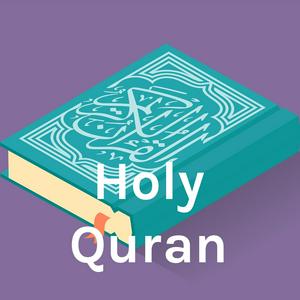
Ontvang de gratis radio.net app
- Zenders en podcasts om te bookmarken
- Streamen via Wi-Fi of Bluetooth
- Ondersteunt Carplay & Android Auto
- Veel andere app-functies
Ontvang de gratis radio.net app
- Zenders en podcasts om te bookmarken
- Streamen via Wi-Fi of Bluetooth
- Ondersteunt Carplay & Android Auto
- Veel andere app-functies


Holy Quran
download de app,
luisteren.



